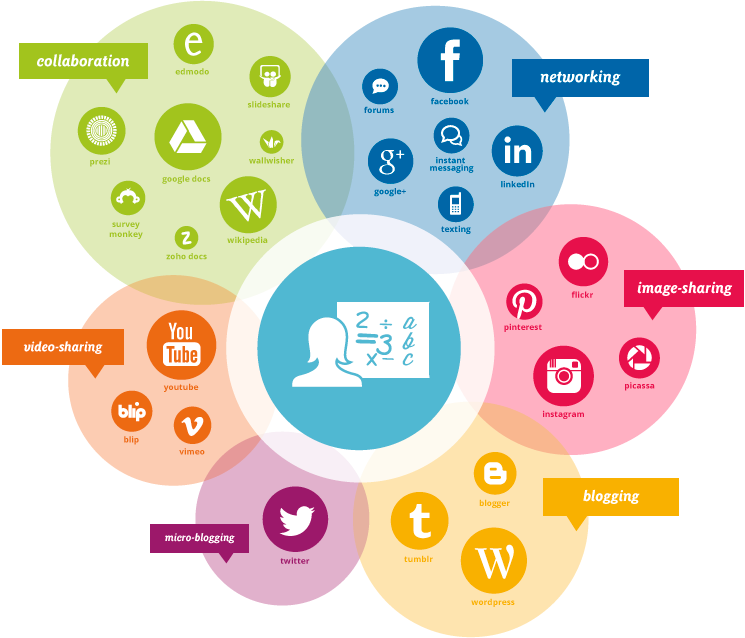Gartner IT Glossary defines
Social media
is an online environment in which content is created, consumed, promoted, distributed, discovered or shared for purposes that are primarily related to communities and social activities, rather than functional, task-oriented objectives. “Media” in this context is an environment characterized by storage and transmission, while “social” describes the distinct way that these messages propagate in a one-to-many or many-to-many fashion.
For the past two decades, the Internet-based communication tools have rapidly evolved from the tools for individual online interactions to a rich landscape of social media platforms. This development involved the following steps:
- news-groups (alt.comp.linux , …)
- mailing lists
- internet relay chat (irc.net , …)
- messengers (icq, msn, …)
- forums (phpbb, mybb, …)
- blogs (WordPress, Livejournal, …)
- home-page hostings (GeoCites, mySpace, dating sites, … )
- social media (facebook, twitter, instagram)
- location-based social media (geofeedia, etc …)
- …
The New Zealand Educational Council presents an infographic of the social media landscape
See also positive case studies, resources, guidelines for ethical use of social media in education (New Zealand Educational Council 2015)
***
Privacy violation and identity theft are common threats in Social Media. See: sources and references in the infographic tips for safe online communication (created by phishme.com – an online security behaviour management company):
Phishing_in_Social_Media (PDF)
How to spot a phishing attempt (PDF)
Holiday phishing (PDF)
Reports and statistics on phishing attacks (2010-2015) (PDF)
***
In the Province of British Columbia (Canada) your information and privacy rights are protected by law. See: Office of the Information & Privacy Commissioner for British Columbia
***
Cory Doctorow in Jonathan Worth conversations discusses the issues with Privacy and Trust in Education and Open Education movement (March 12, 2015).
- What themes from this Cory Doctorow’s talk apply to your practices?
- Is there an institution-wide privacy and information security policy in your organization?
- Do you address the issues of privacy and information security in your teaching?
***
Privacy Commissioner in the Province of British Columbia, Canada
Established in 1993, the Office of the Information and Privacy Commissioner provides independent oversight and enforcement of B.C.’s access and privacy laws, including:
- The Freedom of Information and Protection of Privacy Act (“FOIPPA”), which applies to over 2,900 “public bodies” including ministries, local governments, schools, crown corporations, hospitals, municipal police forces, and more;
- The Personal Information Protection Act (“PIPA”), which applies to over 380,000 private sector “organizations” including businesses, charities, associations, trade unions and trusts.
Elizabeth Denham is B.C.’s current Information and Privacy Commissioner.
